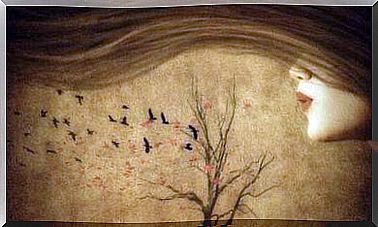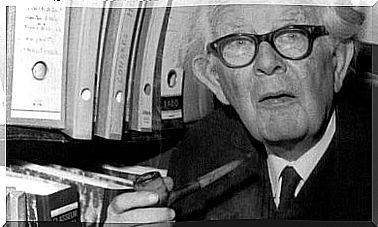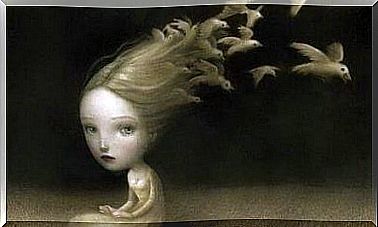The Myth Of Hermes, The Messenger Of The Gods
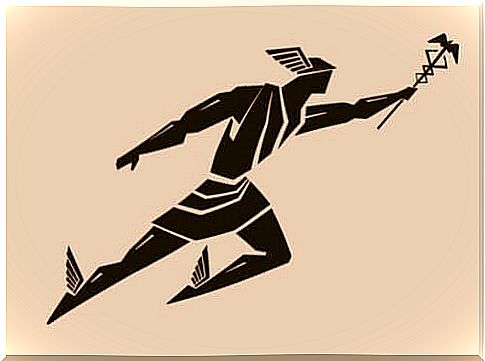
The myth of Hermes tells us about one of the most versatile gods in all of Greek mythology. One of the most active and restless deities, he was considered the protector of numerous activities, such as trade, cunning, borders and travelers who cross them, as well as thieves and liars, as well as guide of the souls of the dead and divine messenger.
He is represented as a handsome and athletic young man, with great speaking skills and always playful. He wears a hat and has wings sometimes on his sandals, sometimes on his feet. For this he is able to move quickly.
Similarly, the myth of Hermes tells that this young man always carried the caduceus with him, a magic wand with which he could put gods and mere mortals to sleep and lead the souls of the latter to the afterlife.
Hermes was the son of Zeus and the Pleiade Maia. He was considered the leader of dreams, keeper of doors and a night spy, but was eventually anointed messenger of the gods.
The myth of Hermes is actually a collection of many myths, since, although he was not the main protagonist, he appeared in many of the most relevant episodes of Greek mythology.

The myth of Hermes and the lyre
It tells the myth that Hermes was born in a cave on Mount Chilean, in Arcadia. He was just a few days old when he escaped from his cradle and ran across the fields. After walking for a long time, he reached a meadow, where his brother Apollo grazed the herds of oxen and cows. Hermes decided to steal the oxen and take them to a cave.
After hiding his loot, he returned home. Before entering, however, he saw a turtle and an idea immediately came to mind. He killed the turtle and emptied the carapace around which he tightened a series of beef gut strings. Thus it was that he invented the lyre. Then he went back to his crib and fell asleep.
When Apollo became aware of the theft, he used his divine powers to find the culprit. Thus it was that he discovered that it had been Hermes and accused him before Zeus. Maia, Hermes’ mother, tried to excuse him, pointing out that he was just a helpless child. However, Zeus did not allow himself to be softened and asked the child to return the oxen.
Overwhelmed by his father’s authority, Hermes went to the cave where he had hidden his booty and returned the cows and oxen to Apollo. The latter, however, was amazed by the lyre .
He thus proposed to the winged god to exchange all his cattle for the instrument. Hermes accepted and also received a staff, with which he built his favorite weapon: the caduceus.
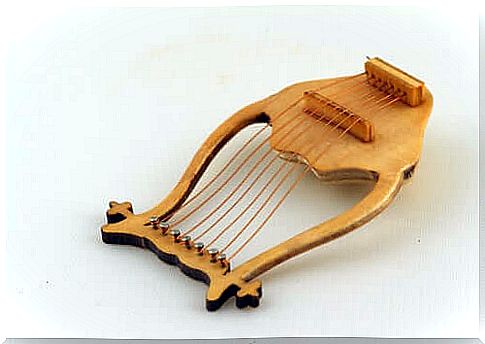
The Adventures of Hermes
Hermes participated in numerous adventures. One of the most important occurred when his father, an unfaithful god, was surprised by his wife Hera, with Io, his priestess.
When Hera discovered the love affair, Zeus tried to protect Io by turning her into a white calf. His wife, however, always attentive, sent Argos, a monster with a thousand eyes, to watch over her, so that no one would approach her.
Zeus gave his son Hermes the task of freeing his mistress. The messenger of the gods sang beautiful songs to the monster and then entertained him with his stories and reflections. He was thus able to fall asleep and was able to carry out the mission that had been entrusted to him by his father.
The myth of Hermes also tells that this god played an important role when he delivered the winged sandals to Perseus. This magical tool was decisive for the hero to defeat Medusa. Hermes also led Perseus’ soul to the entrance to the underworld, as was his custom.
In addition, it played a decisive role in the fate of the Achaeans during the Trojan War. He too, like his father, fell victim to love several times and had numerous descendants. His most famous son is Pan, god of nature and herds. The word hermeneutics, or the art of interpreting hidden meanings, derives from the name of this divinity which in Roman mythology took the name of Mercury.



